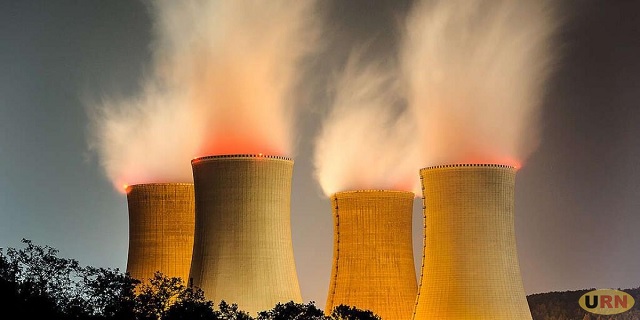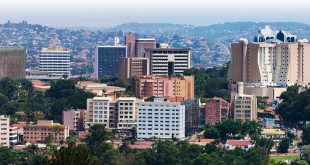
Kampala, Uganda | THE INDEPENDENT | The agreement by close to two hundred countries that they should transition away from burning the fossil fuels that are warming the planet overshadowed the call for nuclear energy.
With most of the delegates at the United Nations Climate Change Conference (COP28) settling down, parties like Uganda have to further accelerate the role of nuclear or atomic energy in its climate agenda.
The suggestion to have nuclear as part of renewable energy sources has always generated debate. Some countries like Germany have started shutting down their nuclear plants. However, at the conference hosted by the United Arab Emirates city of Dubai, countries called for accelerating the deployment of low-emission technologies including nuclear energy to help achieve deep and rapid decarbonization.
This was the first time since the annual climate summits commenced in 1995 that the 198 signatory countries to the UN Framework Convention on Climate Change (UNFCCC) officially called for accelerating the deployment of low-emission technologies including nuclear energy.
They said nuclear alongside solar, wind, hydro, and others to achieve deep and rapid decarbonization, particularly in hard-to-abate sectors such as industry and through the low carbon production of hydrogen.
The appeal for the deployment of nuclear was outlined in the 28th paragraph of the Global Stocktake, a final agreement that assesses where the world stands on achieving the objectives of the 2015 Paris Agreement and how shortcomings might be rectified.
Uganda like other countries has to come up with new Nationally Determined Contributions (NDCs) that are expected to outline its plans to cut emissions as it transits to renewable energy sources.
Uganda launched its Energy Transition Plan during the two-week conference in Dubai. In the plan, outlines its net-zero ambitions to meet its Nationally Determined Contribution to the Paris Agreement in 2030 and peak energy-sector emissions around 2040.
Uganda aims to reach net zero emissions in the energy sector by 2065. Uganda plans to have its first 2000-megawatt nuclear power plant running by the end of 2031.
So while global headlines about the COP28 focused on its call to transition away from fossil fuels and triple renewable energy capacity, journalists and environmentalists seem to have forgotten about the historical decision about nuclear.
More than 22 countries called for a declaration to advance the aspirational goal of tripling nuclear power capacity by 2050, as well as statements by the IAEA and the nuclear industry, underscored the momentum building behind the world’s second-largest source of clean electricity.
Rafael Mariano Grossi, the International Atomic Energy Agency’s Director General said nuclear energy‘s inclusion in the Global Stocktake was nothing short of a historic milestone and a reflection of how much perspectives have changed.
“It demonstrates there is now a global consensus on the need to scale up this clean and reliable technology to achieve our vital goals on climate change and sustainable development.” Said Rafael Mariano Grossi whose agency is helping Uganda to deploy atoms for safe applications including in the energy sector.
The IAEA Statement on Nuclear Power, released on 1 December at COP28 and supported by dozens of countries, called for active recognition and support for nuclear energy technology.
“Resilient and robust nuclear power has the potential to play a wider role in the quest towards net zero carbon emissions, while ensuring the highest level of nuclear safety and security,” statement said.
The IAEA’s annual nuclear power outlook high case projection sees installed nuclear capacity more than doubling to 890 gigawatts by 2050, compared to 369 gigawatts today.
This represents an almost 25% increase from the Agency’s estimate in 2020, with its projections revised up for a third consecutive year.
However, several challenges need to be addressed if nuclear power is to fulfill its potential to help the world get to net zero greenhouse gas emissions by mid-century.
The declaration made by more than 20 countries at COP28 on tripling nuclear capacity invited the World Bank, regional development banks, and international financial institutions to include nuclear in their lending policies while underscoring the need for secure supply chains to ramp up deployment of the technology.
At COP28, Belgian Prime Minister Alexander De Croo, French President Emmanuel Macron , and Mr Grossi announced that the world’s first Nuclear Energy Summit will be held in Brussels in March 2024 to build on the global momentum behind nuclear power.
“Today we celebrate the real progress that nuclear power has made in the global climate and energy debate,” the IAEA Director General said. “But we must tackle several challenges if we are to succeed.
The Nuclear Energy Summit is the next major event where the world will come together to discuss how we can forge real solutions, so that the lofty pledges made at COP28 can become reality.”
*******
URN
 The Independent Uganda: You get the Truth we Pay the Price
The Independent Uganda: You get the Truth we Pay the Price


